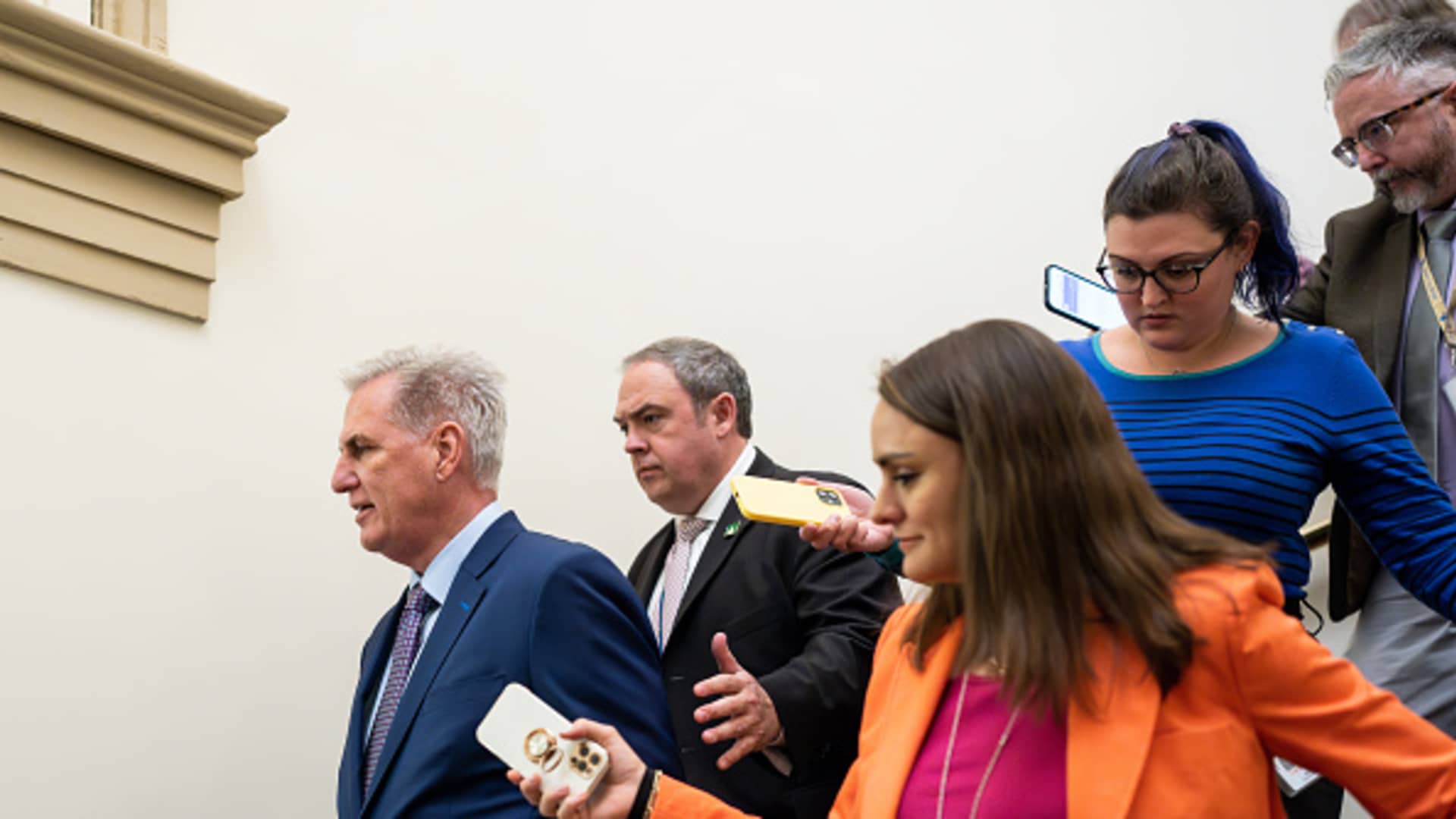Speaker of the House Kevin McCarthy, R-Calif., leaves the Capitol on his way to meet with Preident Biden to discuss the debt limit on Tuesday, May 9, 2023.
Bill Clark | Cq-roll Call, Inc. | Getty Images
This report is from today’s CNBC Daily Open, our new, international markets newsletter. CNBC Daily Open brings investors up to speed on everything they need to know, no matter where they are. Like what you see? You can subscribe here.
Markets lacked conviction, while the debate over the U.S. debt ceiling remained roiled by passionate intensity.
What you need to know today
- NBCUniversal advertising boss Linda Yaccarino will be Twitter’s next CEO, current CEO Elon Musk confirmed. Yaccarino “will focus primarily on business operations, while I focus on product design & new technology,” tweeted Musk.
- Turkey’s presidential and parliamentary elections closed Sunday. Neither incumbent President Recep Tayyip Erdogan nor opposition rival Kemal Kilicdaroglu may clear the 50% threshold to win outright, according to Reuters. If so, the presidential election would go to a runoff on May 28.
- PRO Bitcoin lost 11.25% last week, hitting a 2-month low of $25,843. Analysts think the cryptocurrency might be in for a price reversal, as suggested by its head-and-shoulders pattern — three tops with a peak in the middle.
The bottom line
Markets lacked conviction, while the debate over the U.S. debt ceiling remained roiled by passionate intensity, to borrow the words of Irish poet W. B. Yeats.
U.S. stocks barely budged Friday. The Dow Jones Industrial Average remained flat, the S&P 500 slid 0.16% and the Nasdaq Composite lost 0.35%. On a weekly basis, the Dow lost 1.1%, the S&P 500 dropped 0.3%, while the Nasdaq rose 0.4%.
It’s true that some stocks in the S&P bucked the malaise to scale new heights (and plummet to fresh lows). Pepsico, for instance, hit $196.12 a share, its highest level since 1965. On the other hand, Match Group — which owns dating platforms like Tinder, Match and OkCupid — sank to $30.86 a share, its lowest level since its IPO in November 2015.
But overall, “none of the sectors are making convincing moves in either direction, reflecting a general lack of conviction in the market,” said Joe Cusick, portfolio specialist and senior vice president at Calamos Investments.
Investors aside, U.S. consumers are also losing faith in the health of the economy. A preliminary reading on the University of Michigan’s Survey of Consumers showed an unexpectedly low reading of 57.7 for May, down from 63.5 in April, and the lowest in six months.
Investors and consumers are indecisive partly because of the possibility that the U.S. might fail to repay its debts. Over the past week, we’ve heard dire warnings from JPMorgan Chase CEO Jamie Dimon, U.S. Treasury Secretary Janet Yellen and even British Finance Minister Jeremy Hunt about the consequences of the U.S. defaulting. All reiterated the same point: If the U.S. — the center of the global financial system — fails to repay its national debt, economic anarchy would be unleashed on the world.
U.S. President Joe Biden will meet other lawmakers early this week — after a last-minute postponement — to continue talks on the debt ceiling. Investors, bankers and world leaders alike will soon learn if the U.S. can avert a fresh crisis.
Subscribe here to get this report sent directly to your inbox each morning before markets open.


